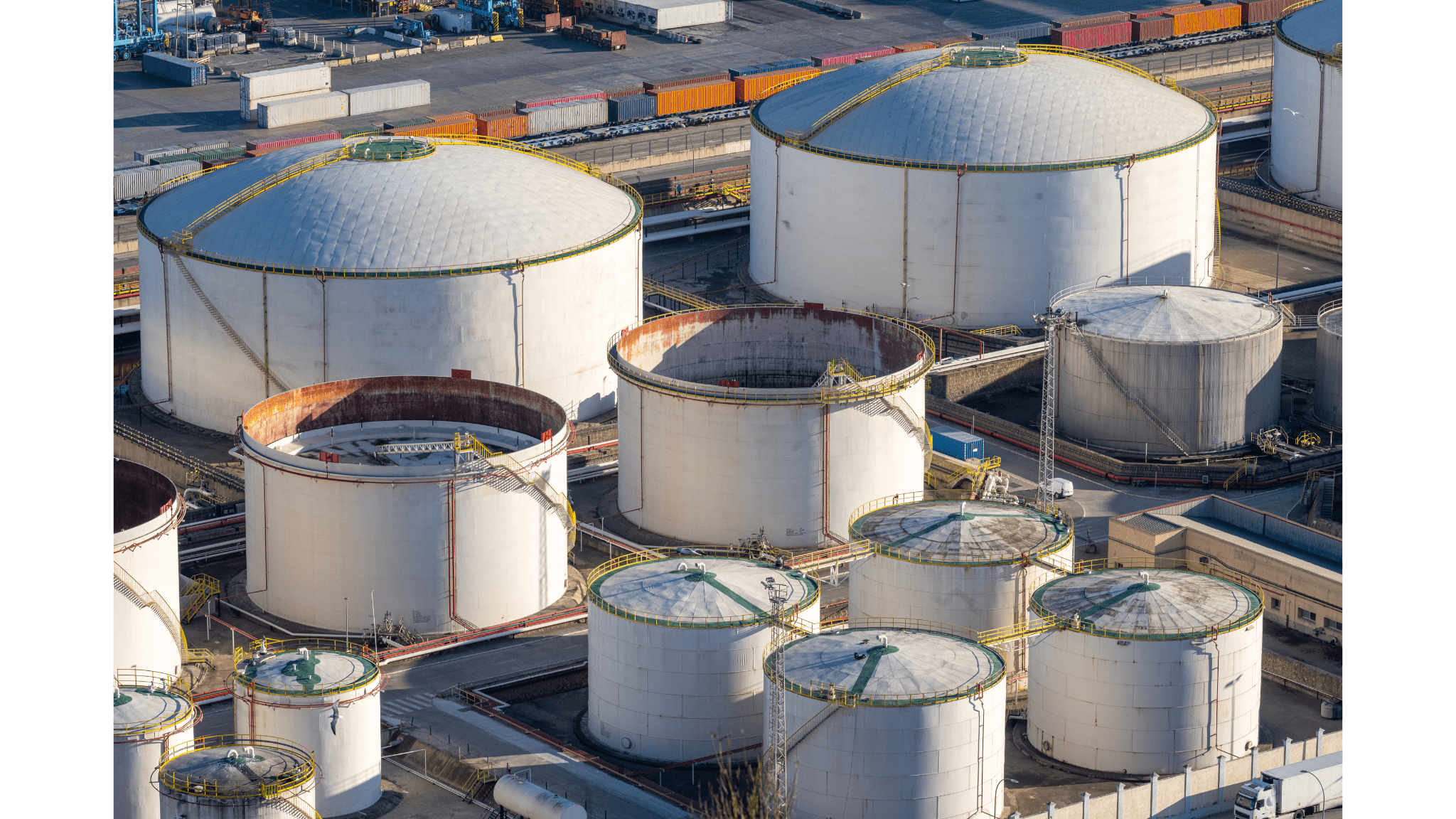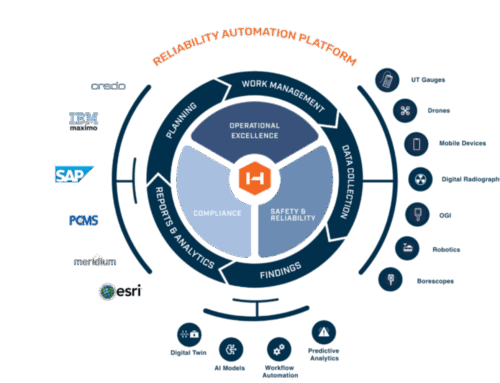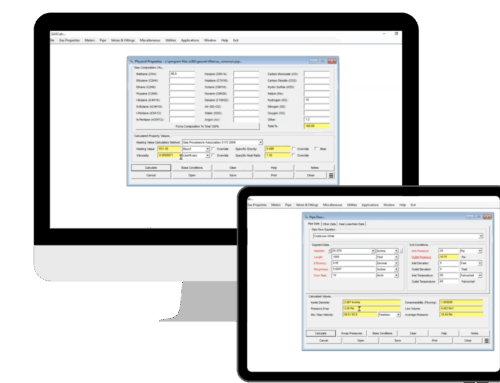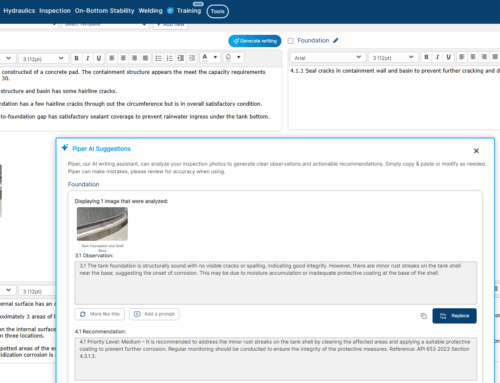Solving the Pains of API Inspections with the API Inspectors Toolbox
By Kesley Price
API inspections are a critical part of maintaining asset integrity and safety, but they come with their own set of challenges. Inspectors face the daunting task of ensuring that every aspect of an asset‘s condition meets strict regulatory standards, which can be both time-consuming and complex. The need for precision, coupled with the volume of data and the intricacies of regulations, often leads to inefficiencies and increased operational costs. The traditional methods of conducting these inspections are fraught with challenges, particularly in data management and report compilation, often relegating inspectors to the confines of their offices, sifting through mountains of data and standards.
The Pains of Traditional API Inspections
- Complex Regulations: Navigating the maze of API 510, 570, and 653 standards is no small feat. Each set of regulations demands thorough understanding and meticulous attention to detail, making compliance a challenge.
- Data Overload: Inspectors are inundated with vast amounts of data that must be accurately analyzed and reported. This not only increases the risk of errors but also extends the time required to complete inspections.
- Inefficiency and Productivity Losses: Traditional methods of inspection often involve manual data collection, calculations and report compilation that are not only time-consuming but also prone to human error, leading to kickbacks and delays.
- Lack of Adequate Tools: Until recently, there hasn’t been a tool specifically designed to address the unique needs of API inspectors, forcing them to rely on generic software that may not fully cater to the nuances of API inspections.
How the API Inspectors Toolbox helps
Enter the API Inspectors Toolbox (APITB), a tool designed specifically for API 510, 570 and 653 inspectors, technicians, and asset owners/operators. The APITB is more than just a tool; it’s a comprehensive solution that streamlines the entire inspection process. From data collection and calculations to report generation and inspection calendars, the toolbox simplifies every step, ensuring that inspectors can focus on what they do best – safeguarding the integrity of our pipelines, pressure vessels and tanks.
Key Features of the API Inspectors Toolbox: 
- Comprehensive Compliance: APITB is tailored to meet the specific requirements of API 510, 570, and 653 inspections, ensuring that all aspects of compliance are covered. All codes and regulations that could potentially relate to these inspections is in one easy-to-access database.
- Efficient Data Management: The tool provides a structured approach to managing inspection data, reducing the risk of errors, and making it easier to analyze and report findings.
- Productivity Boost: With APITB, inspectors can complete their tasks more efficiently, thanks to automated workflows and tools designed to minimize manual input and maximize output.
- Technical Precision: The toolbox is developed with the precise technical workflows of API inspectors in mind, offering features and functionalities that directly address their needs.
Maximizing Quality Standards and Productivity
By equipping inspectors with the right technology, APITB not only enhances the quality of inspections but also significantly increases productivity. The days of grappling with inadequate tools and manual processes are over. With APITB, inspectors can now focus on what truly matters—ensuring the safety and integrity of assets with precision and efficiency.
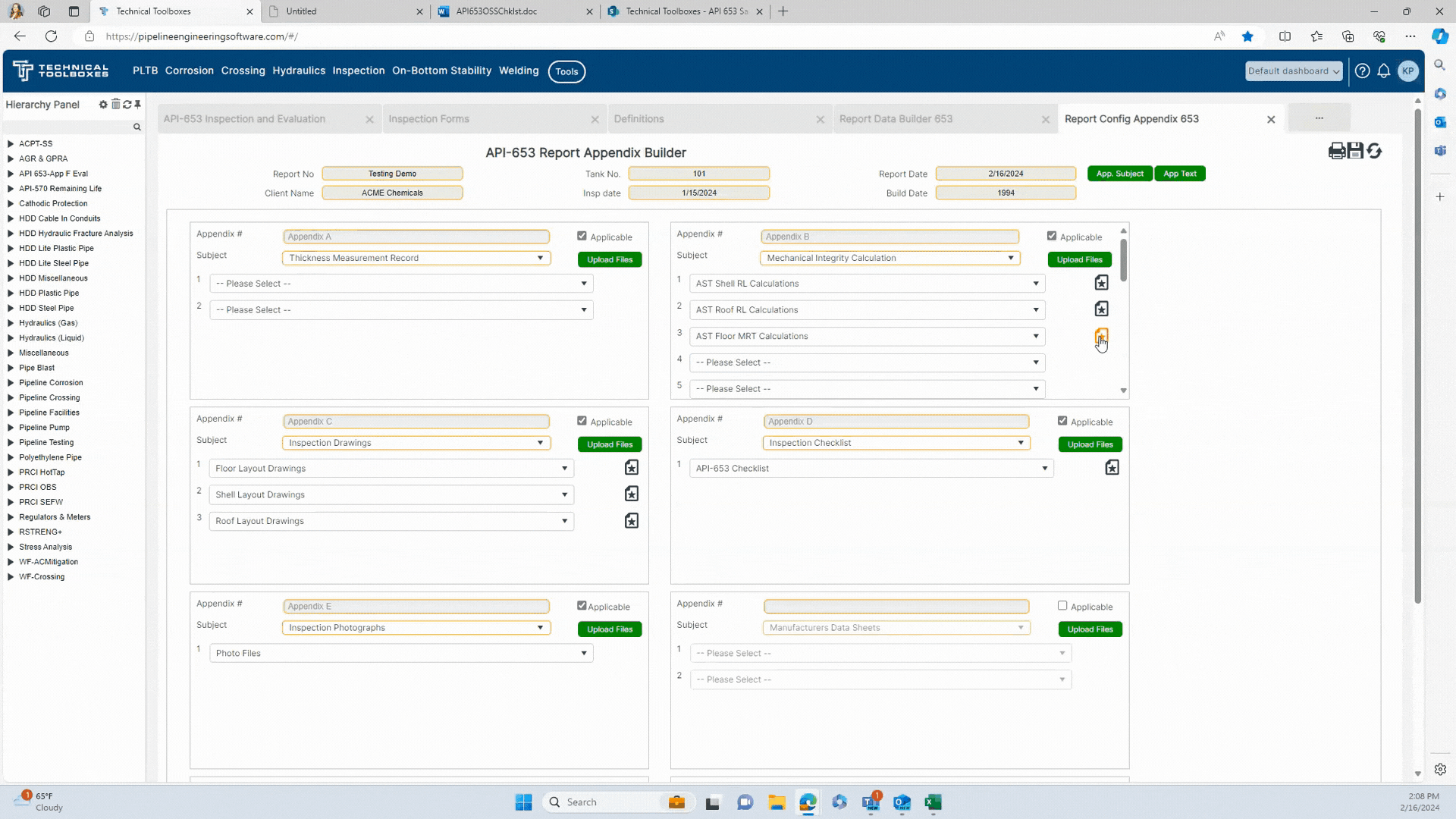
In conclusion, the challenges of API inspections are many, but with the right tools, they can be effectively addressed.
To learn more about APITB, please visit our webpage. Check out our recent webinar focused on API 653. For more information about our solutions or to schedule a demo.
Suggested Post
The Network Modeling Tool Gas Engineers Didn’t Know They Needed
The Network Modeling Tool Gas Engineers Didn’t Know They Needed By Kesley Price You’ve outgrown your spreadsheets, now [...]
The Trusted Tool Gas Engineers Didn’t Know They Were Missing
Do You Really Know What’s Flowing Through Your Pipes? The Trusted Tool Gas Engineers [...]
2026 API Compliance: What You Need to Know
2026 API Compliance: What You Need to Know By Kesley Price New rules. Tougher [...]

